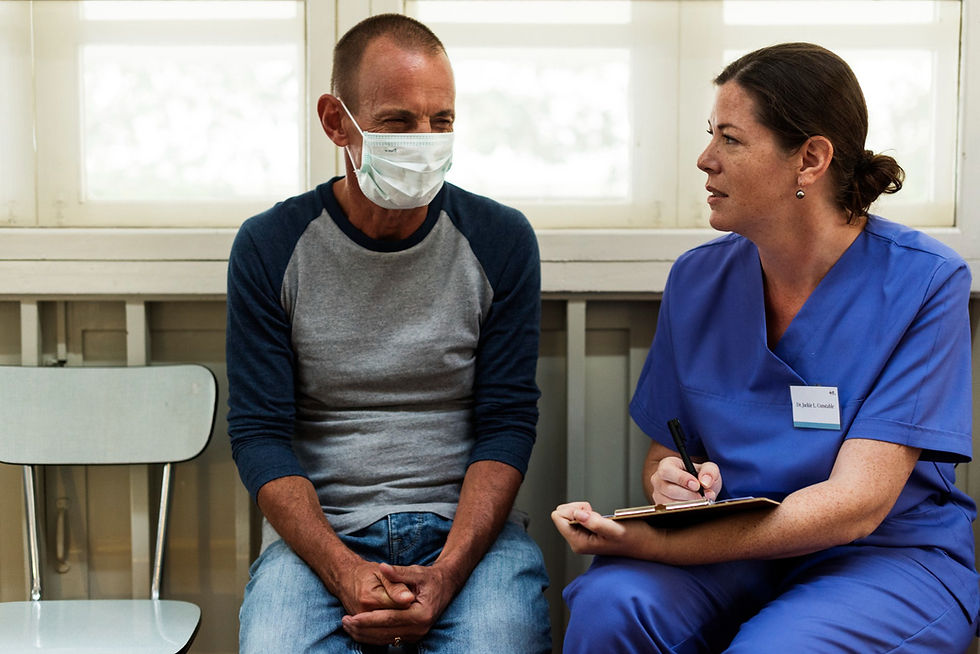Recruiting Patients in Rare Disease Clinical Trials: Tips from a Clinical Trial Recruitment Agency
- mario1654
- Apr 30, 2025
- 3 min read
Updated: Aug 6, 2025

Recruiting patients for rare disease clinical trials presents unique challenges due to the limited number of individuals affected by these conditions. For healthcare providers and researchers, identifying and enrolling eligible patients is a critical but complex task and this is where a good clinical trial recruitment agency can support you.
As a clinical trial recruitment agency, we understand the intricacies involved in recruiting for rare disease trials, and we are here to share best practices to help streamline the process.
1. Leverage Disease Registries and Patient Databases
One of the most effective methods for recruiting patients in rare disease trials is to tap into disease-specific registries and patient databases.
These resources contain valuable information about patients who have been diagnosed with a rare disease, and they can be an essential tool for identifying potential participants.
2. Collaborate with Rare Disease Organisations
Rare disease organisations and advocacy groups can be powerful allies in patient recruitment. These organisations have established networks of patients, caregivers, and healthcare professionals who are often deeply engaged in research and clinical trials. They can help raise awareness about upcoming trials and direct potential participants to appropriate recruitment resources.
Partnering with these organisations allows for direct communication with patients who are already knowledgeable about their conditions and might be more willing to consider participating in clinical trials.
A clinical trial recruitment agency can facilitate these partnerships and help build trust within the rare disease community.
3. Provide Clear, Compassionate Communication
Recruiting patients for rare disease trials requires sensitivity and clear communication.
Many patients with rare diseases have been dealing with their conditions for years, and they may feel apprehensive or overwhelmed about participating in clinical trials.
It's essential to provide compassionate and clear information about the trial's purpose, the potential risks and benefits, and what they can expect throughout the study.
4. Utilise Social Media and Online Platforms
In today's digital age, social media and online platforms offer significant potential for reaching patients with rare diseases. Many rare disease communities are active on social media, and clinical trial recruitment agencies can use targeted online advertising and platforms to promote trial opportunities. Social media campaigns, patient-focused blogs, and online support groups can serve as effective tools for engaging with rare disease patients and raising awareness about your trial.
Using digital channels also allows for broader geographic outreach, helping you reach patients who may not be within immediate proximity to your research site.
5. Offer Flexible Trial Participation Options
Patients with rare diseases may face significant challenges in attending in-person appointments due to their location, health status, or access to transportation. Offering flexible participation options, such as virtual visits, home health monitoring, or local site visits, can improve recruitment and retention rates.
6. Ensure a Personalised Approach to Clinical Trial Recruitment Agency
Rare disease patients often feel isolated, as they may not encounter others with the same condition. Therefore, it's essential to take a personalised approach when recruiting for clinical trials. Showing empathy and offering one-on-one support throughout the recruitment process helps build rapport and trust with potential participants.
7. Promote the Long-Term Impact of Participation
Patients with rare diseases are often motivated by the potential to help others who share their condition. Many individuals view participation in clinical trials as an opportunity to contribute to the advancement of medical research and the development of treatments for their disease.
Emphasising the long-term benefits of clinical trial participation—such as the possibility of developing new therapies—can help motivate patients to take part. It is important to communicate how their involvement will help improve the understanding of the disease and potentially improve the quality of life for others living with the same condition.
At TrialChoices, we understand the unique challenges of recruiting patients for rare disease clinical trials. Our expertise in both commercial and academic recruitment ensures that we can efficiently connect you with the right participants, even in the most specialised areas.
Whether you're navigating the complexities of rare disease studies or striving to enhance patient engagement, we are dedicated to supporting you throughout the recruitment process.
Reach out to us today to learn how we can help you achieve your recruitment goals and make a meaningful impact on the development of new treatments.
Comments